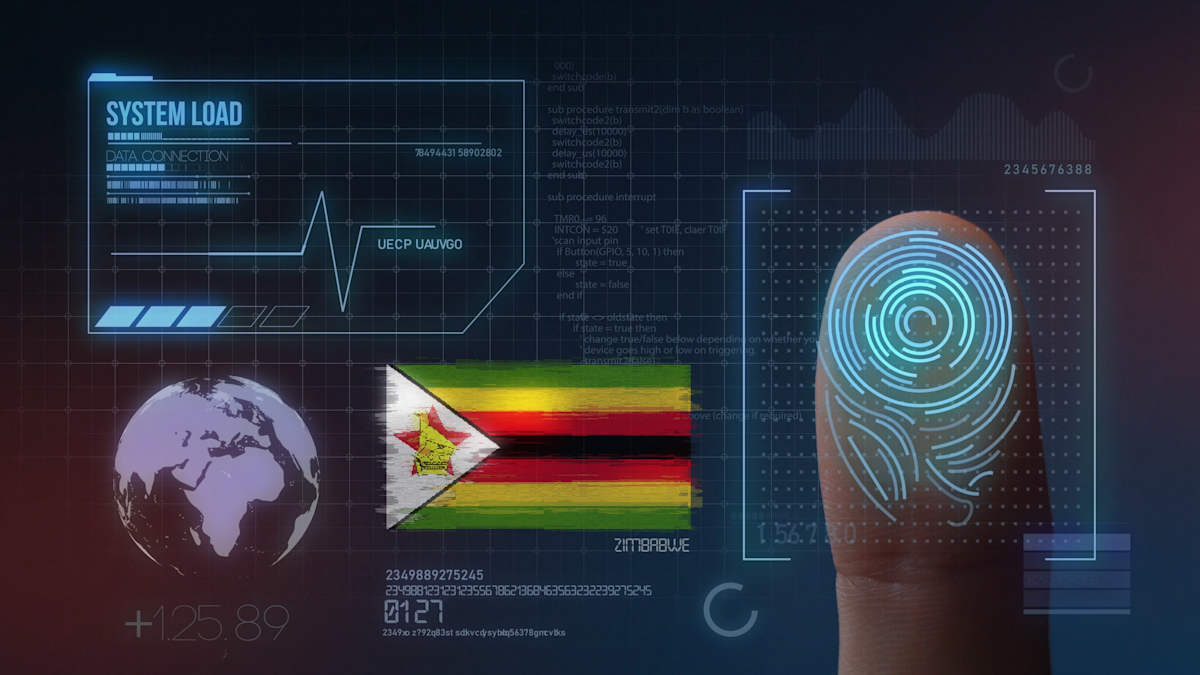The Zimbabwean government is reportedly on the verge of launching national digital identification cards, following the completion of an extensive overhaul of the country’s civil registry. Officials view this reform as a crucial step toward establishing a modern national ID system however privacy activists fear it would lead to more government surveillance.
In May, local media reported that the Ministry of Home Affairs announced plans to initiate the issuance of digital IDs this month. However, there are currently no official updates on the exact timing of the launch. Kazembe Kazembe, [1] the Minister of Home Affairs and Cultural Heritage, claims that [2] the digital ID system aims to reduce identity theft, enhance access to government services, and align Zimbabwe with international standards. The rollout is set to commence in Zimbabwe's largest cities, Harare and Bulawayo, with plans to expand to other parts of the country thereafter.
Kazembe Kazembe said during a press briefing, “This digital ID will help curb identity theft, increase access to government services, and align Zimbabwe with global standards.” Zimbabwe has historically grappled with significant issues in its civil registration system, particularly affecting rural residents who encounter difficulties in obtaining identity documents due to bureaucratic hurdles, inadequate infrastructure, and high travel expenses. The introduction of new identification cards is set to incorporate fingerprints and other biometric data, a move that officials claim will enhance national security and streamline electoral and social services. Nevertheless, critics have voiced apprehensions regarding data privacy and the risks associated with increased government surveillance.
Beatrice Mtetwa, [3] a lawyer and digital rights advocate said “We need a comprehensive data protection law to accompany this rollout to safeguard citizens’ privacy.” The rollout of [4] digital IDs in Zimbabwe marks the culmination of a modernization initiative that began in 2023. The process included upgrading the national population registry and integrating it with essential services to improve accessibility for citizens. “This system will allow you to apply for your passport or anything on your phone. Coming to birth certificates, the system will also be linked to the Ministry of Health and Child Care, to clinics and hospitals. When a child is born, the system will trigger a notification instantly at the Civil Registry, so that Child X will have a birth record immediately,” said Kazembe Kazembe.
In recent years, authorities have implemented various digital ID initiatives to streamline the issuance of biometric passports and national identity cards. To further promote the adoption of digital IDs, the government has launched mobile registration campaigns aimed at boosting the number of citizens obtaining essential identity documents. According to a report from local media, efforts to facilitate mobile registration are ongoing, with civil registration services being expanded to various remote regions of the country. This initiative [5] is backed by UNICEF and the Swedish Embassy. Local officials have lauded the initiative, noting that it provides much-needed assistance to those who have historically faced difficulties in obtaining official identity documents.
Zimbabwean authorities have recently introduced an AI-driven smart traffic system in Harare, with intentions to expand its reach to other significant cities across the nation. According to Bulawayo 24, [6] this innovative system has been locally developed by TelOne, the country’s [7] state-owned telecommunications provider, as part of the broader Safe City Project. The initiative involves the installation of sensors and cameras at intersections and along key roadways to monitor traffic congestion, manage road accidents, enforce traffic regulations, and enhance overall safety and security in urban transportation. Dr Jenfan Muswere who [8] is the Information, Publicity and Broadcasting Services Minister said, “This innovative system utilises Internet of Things, Artificial Intelligence, and big data analytics to enhance traffic flow, road safety, and transparency.”
Zimbabwe is pursuing a smart city initiative for a new capital being developed on the outskirts of Harare, [9] although the project has come under significant scrutiny from digital rights advocates. In Harare, a city originally designed to accommodate 200,000 residents but now housing approximately 1.6 million, many locals express skepticism regarding the Zim Cyber City initiative. They face a myriad of daily challenges, including rampant corruption, overflowing garbage, and waterborne illnesses linked to deteriorating water and sewer systems. Tawanda Mugari, [10] a chief technology officer and co-founder of the [11] Digital Society Africa said, “There is going to be so much increased surveillance of citizens by the government. They can use them to their own advantage, to identify people. If there is a robbery it is easier to identify people using footage from those cameras. But if there is a genuine protest it is then easier for them to identify who was leading the protests.”
